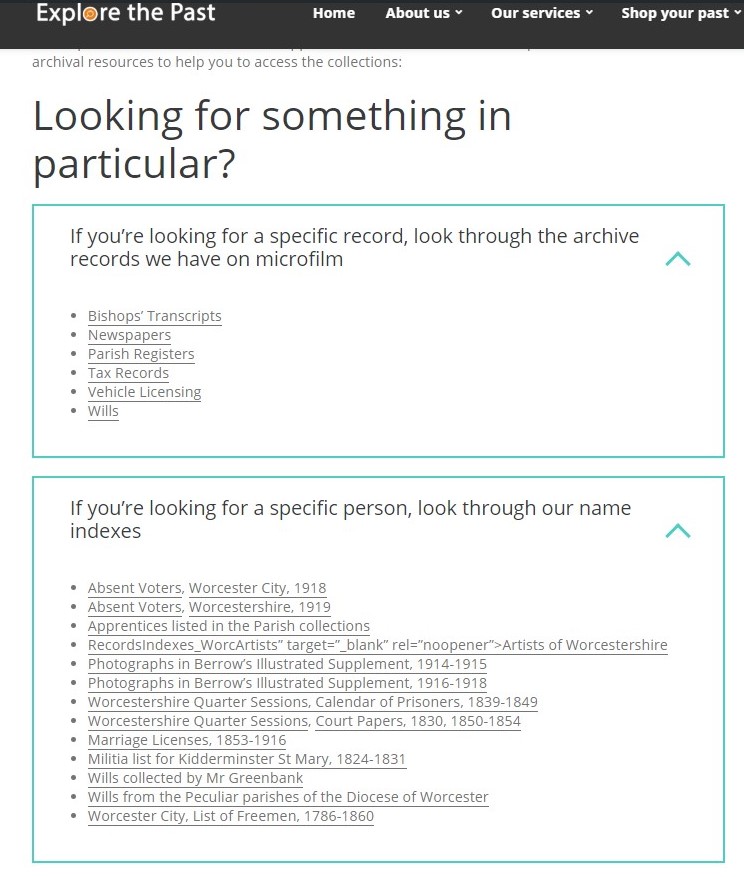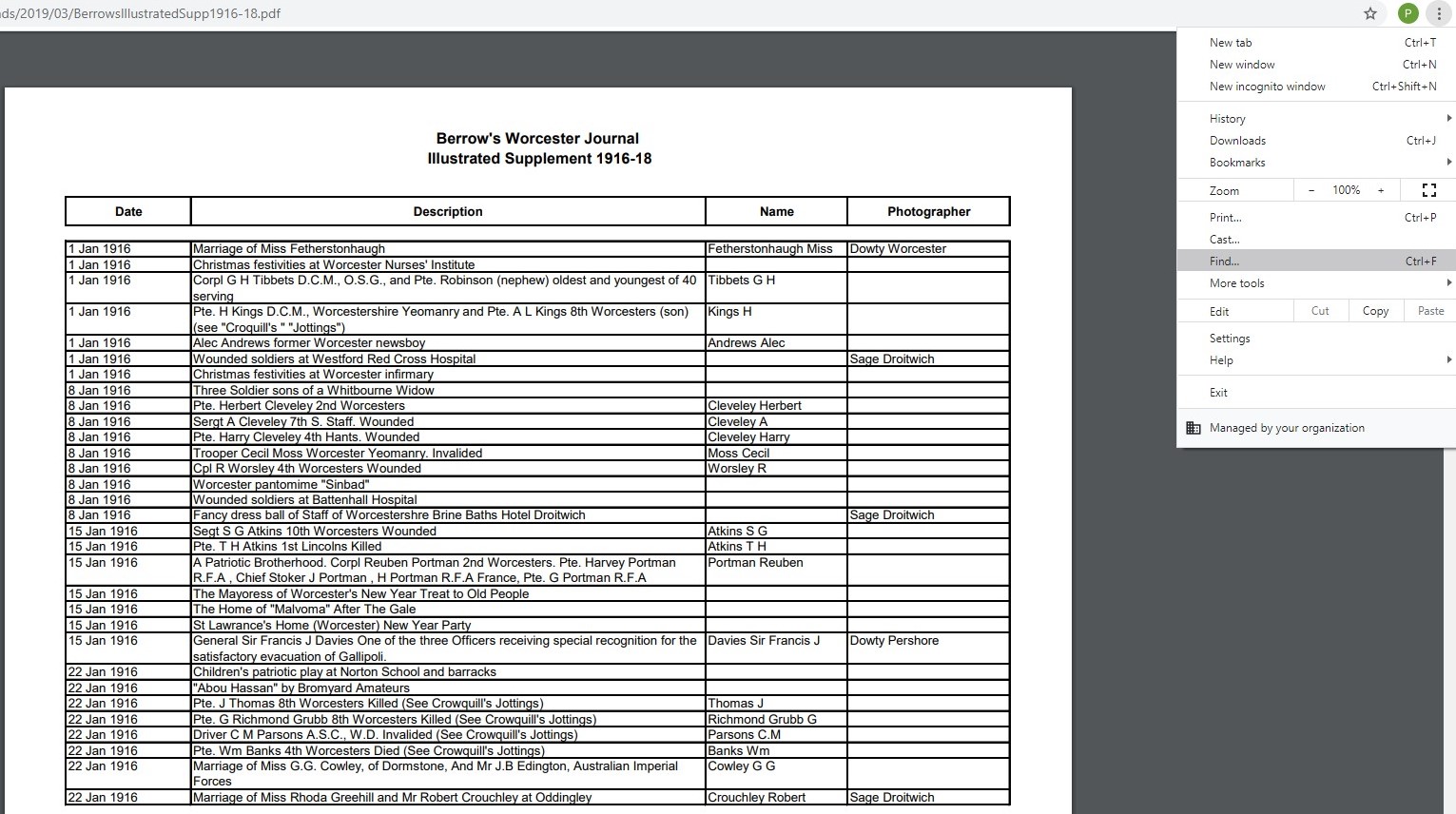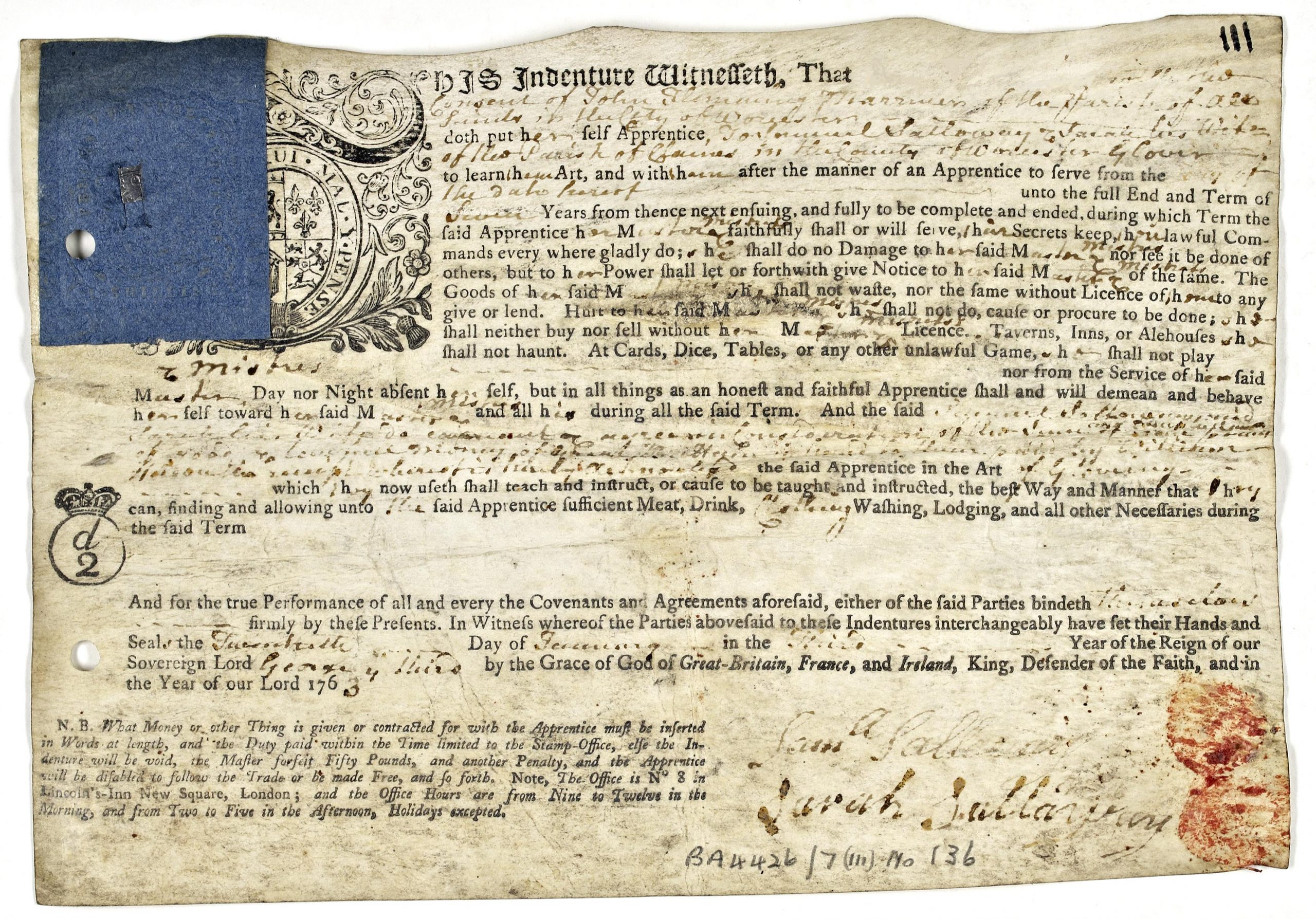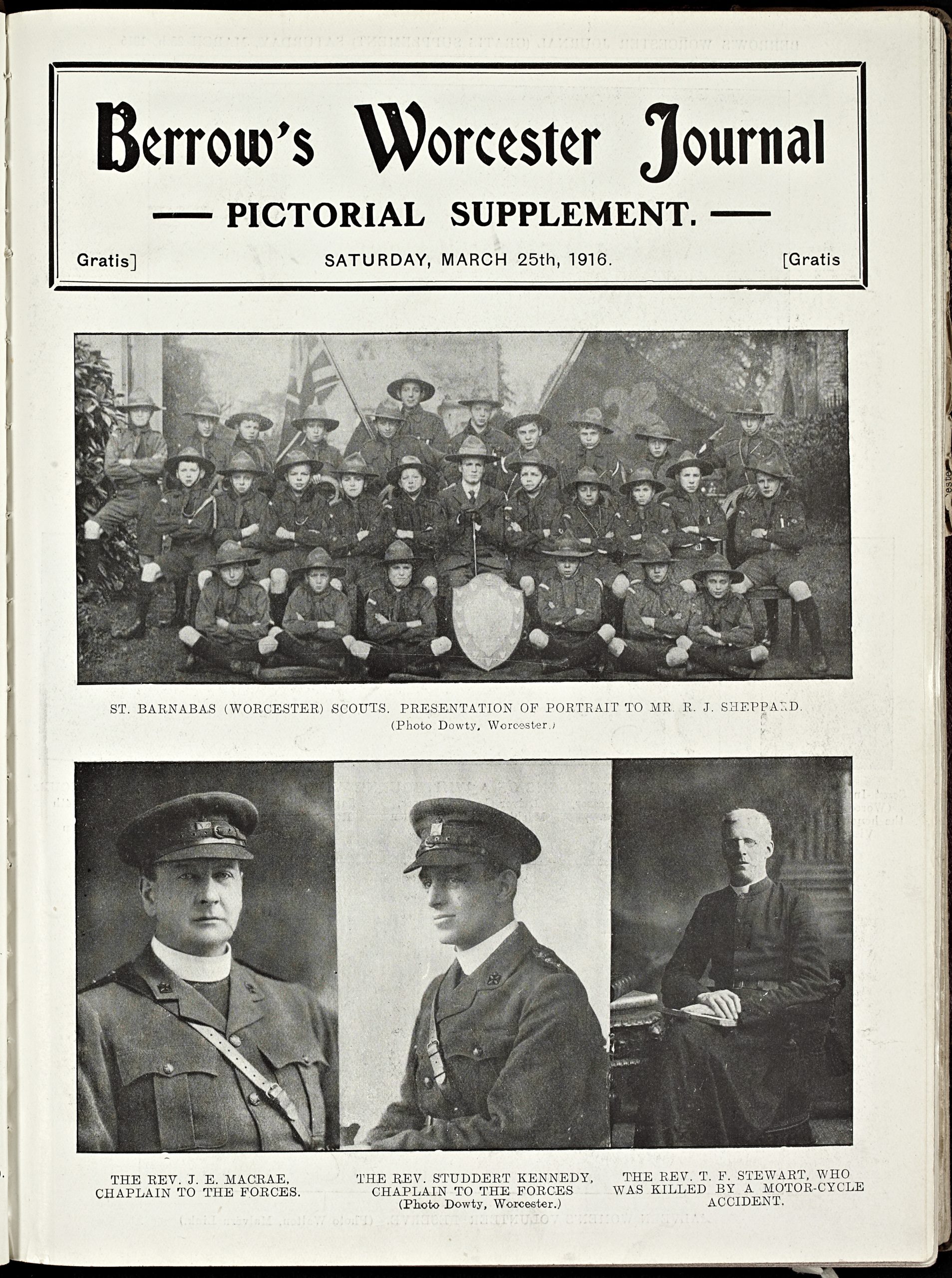Online Resources: Name Indexes
- 4th June 2020
More and more people are looking for online name indexes to help them with their family history, or with house or local history. On our website we have several indexes with names which have created by our wonderful volunteers.
Our 12 miles of archives contain numerous names, which may be people you are interested in. Sadly our archivists don’t have time to index and pick out names in all the documents as we are busy cataloguing the numerous new collections which are passed to us. To enable us to catalogue as many as possible we can usually just describe what it is in each box.
Volunteers and local groups, however, have helped over the years to index some of the key collections. Some of these are pre-computers (we go back 75 years, and some name indexes even predate us) and just available in books or paper slip indexes in The Hive, but newer ones are digital, and online.
You can access them from Our Collections page. Just click on one and search. Many of them are pdfs, so go to the top right corner, select Find and enter the name you’re looking for


To search for a name go to menu in top right hand corner and select Find

Hazel, one of our wonderful volunteers, working on the Absent Voters index at home
Absent Voters
One index is Absent Voters, which was part of the electoral registers at the end of the First World War. With millions still overseas the electoral registers had to record who was in the armed forces, along with their regiment and number. This can provide important information for tracking people down, as otherwise locating soldiers is difficult due to the large numbers involved, and numerous people with the same name, and can enable people to track the person’s military record from this. Anyone who has used electoral registers knows that since they are arranged by place finding an individual is very hard so the indexes are invaluable. St John’s Scouts used these as part of a project looking at soldiers who returned from WWI.
They are still being worked on, and Hazel is one of those transcribing the Absent Voter lists, working at home at present. They are then uploaded onto our website one at a time as they are completed. We have a fantastic group of volunteers who support us in many ways. Many of the tasks they help us with are done in The Hive, but we also have a few people working on indexes and other project who are still able to carry on at home, and we are very grateful for this.

Absent Voters register for The Butts
Apprentices
Apprenticeships were a common way of learning a trade, or for poor children to be passed into someone else’s hand to clothe and feed them in return for their training work. Documents (indentures) were created to record these, and many have been indexed. Apprenticeships as part of the Poor Law system, where the local Guardians would arrange the placements so they didn’t have to feed children who could working, often don’t survive though, so most are private arrangements.

Apprenticeship indenture
Photographs in Berrow’s Illustrated Supplement
In the early 20th centuryBerrow’s Worcester Journal never had photos in their newspaper itself, and instead produced a two page supplement each week. Among the usual newspaper photos of events there are photos of soldiers during WWI, sent in by relatives. They are listed when they enlist, when they have died, or in connection with a sibling being in the news.
In advance of the WWI Centenary we had the war years indexed as we knew they would be very helpful to people searching for their WWI ancestors and for those studying the period. This was then used numerous times, as predicted, and many people located the only known photos they’d seen of one of their ancestors.
The supplements have been digitised and are on CD on the self service area of The Hive.

Quarter Sessions
These were a court for middling offences, and a forerunner of the County council, looking after roads and bridges and settling disputes between parishes. They were overseen by the local Justices of the Peace. Many people are mentioned in them either as suspected criminals, witnesses, constables, surveyors, licence applicants. Earlier indexes are on paper still, but the recent ones are online.
Wills
Until the latter half of the 19th century wills were proved in the Bishop’s Court, s they are with us in the archives. The main index was compiled pre computer, but two of the indexes are digitised.
The Greenbank Wills were ones taken out of the main collection by Mr Greenbank, a local registrar. Why were these chosen to be separate? We have o idea! No one has ever worked out why.
Peculiar Parishes were ones outside the normal jurisdiction of Bishops and Archdeacons. This changed in the 1840s but earlier ones were proved in a separate court to usual ones.
So have a browse and see who or what you can find!
Post a Comment